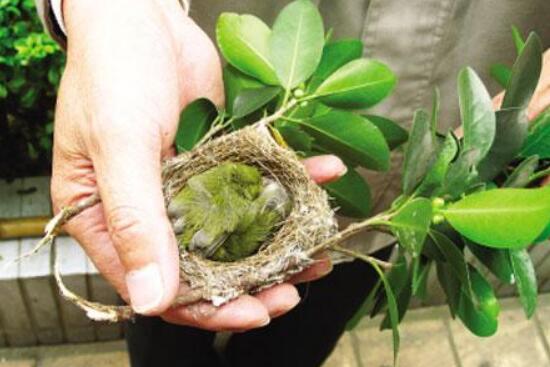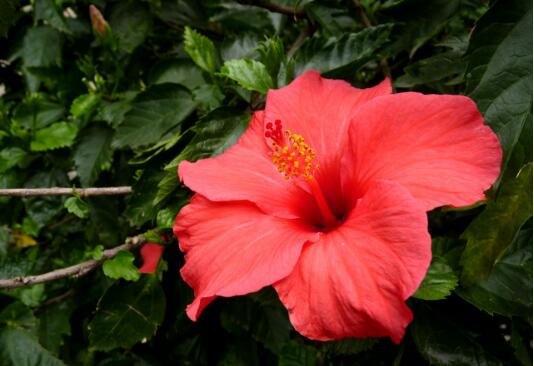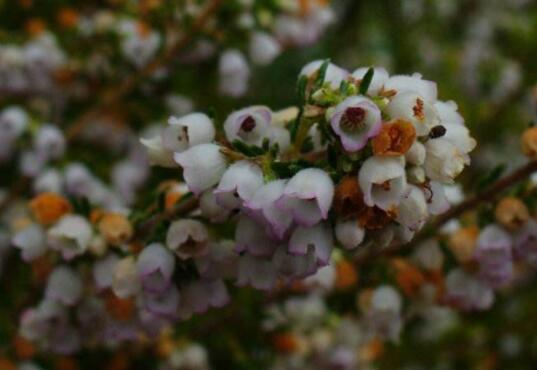How to propagate banyan tree, banyan tree propagation method Daquan / cutting / striping / grafting / sowing
Banyan tree, a variety of shapes, incomparably beautiful plant, its roots are unusually developed, often exposed to the soil, the upper body is luxuriant, deeply loved by flower friends. In life, many flower friends want to raise banyan trees. If they don't buy them in the past, they might as well plant them themselves. How can banyan trees reproduce? The following is a complete collection of banyan breeding methods, including four methods, let's go and have a look!
First, there are four ways to reproduce banyan trees.

As a novice, you can know how to cultivate banyan trees, but if you are an old hand, you should also know how to breed banyan trees, which can not only increase the fun of banyan cultivation, but also make banyan trees more than one pot. It is understood that there are four commonly used methods for breeding banyan trees: cutting, striping, grafting and sowing, and then take a look at the specific operation.
II. Complete Collection of Propagation methods of Banyan Tree
(1) the method of cutting propagation of banyan tree.
The cutting time of banyan tree is generally chosen in spring, when the survival rate of operation is very high. Methods: on healthy banyan potted plants, 1-2-year-old branches were cut into 5-15 cm length, and 1-2 leaves were retained as cuttings.
Then insert the cuttings in plain sandy soil and insert them into the soil. After cutting, cover with plastic film to moisturize, spray water 1-2 times a day to improve air humidity, pay attention to wind, and then control the temperature at 25 ℃. It will take root and sprout in 30-45 days, and then it can be planted in pot.
(2) the method of strip propagation of banyan tree.
One of the fastest propagation methods of banyan trees is the cutting method, but if the branches are soft, you can choose the striping method to propagate. The specific operations are as follows:
Next to the mother plant of the banyan tree, put a large flowerpot filled with potted soil. Then on the mother plant, select the biennial branches with good shape and softness, bend them down and bury them in the new flowerpot, and press the branches with stones. Generally speaking, after 2 months, the cocoa cut off the mother plant, and the branches can slowly grow into a larger potted plant.
(3) the method of grafting propagation of banyan tree.
In the complete collection of banyan breeding methods, grafting is also a kind of hands-on operation. Methods: the growing and uncapped robust branches were selected as scions, the best length was 2-3 cm, the lower end was cut into V shape, and then a more beautiful rootstock was selected for grafting.
At the top of the rootstock, cut into inverted V lines, and then insert the scion. Then use plastic film to tightly pour water, put in a ventilated and bright place, uncover the film and breathe once a day, generally after about 45 days to survive and release. Pay attention to stop watering before grafting to reduce the bleeding in the process of grafting.
(4) methods of sowing and propagation of banyan trees.
When it comes to how to reproduce banyan trees, the best way is to sow seeds, which is the most conducive to root development and growth. It should be noted that banyan seeds should be collected, treated and sown. After sowing, do not cover the soil, spray clean water 1-2 times a day to keep the bed moist. Under the condition of 25-30 ℃, it sprouted in succession 10 days after sowing.
Generally speaking, the propagation of banyan trees, whether it is cutting, striping, grafting, or sowing, can survive, but the most suitable for family reproduction is still cutting. Of course, the method is dead, people are alive, we can according to the actual situation, choose the method to breed. On the banyan tree breeding methods Daquan, Xiaobian introduced here, I hope to bring help to you.
The common propagation methods of banyan tree are cutting, striping and grafting.
Bonsai Flower Network Guide: today, the editor of Flower Bonsai Network shares with you the articles about the common propagation methods of banyan trees, such as cutting, striping and grafting. Let's take a look.
The common propagation methods of banyan tree are cutting, striping and grafting, which can be carried out indoors in the north, combined with shaping and pruning in spring and summer, and the banyan tree can also be sown, but it grows slowly and is not recommended.
Cutting Propagation of Banyan Tree
The cutting of the banyan tree is generally selected in spring. The 1-2-year-old branches are cut and the length is 5 cm to 15 cm. Each section contains 3 to 4 nodes. The lower leaf is removed, and only the upper leaf is retained. When the leaf is larger, it can be tied into a tube with a string.
The prepared branches were planted in the soil and planted in the soil. After cutting, the cuttings were covered with plastic film to keep moisture. The temperature was controlled at 25 ℃, 30 to 45 days to take root and sprout. After taking root, you can plant it in a pot.
Striping propagation of banyan tree
The family can also use the striping method for reproduction, burying part of the branches into the soil, compacting and watering, the operation is simple, generally about 30 days can take root. Select a two-year-old branch, peel the smooth part of the branch with a width of 1cm to 1.5cm, then wrap it in wet peat or moss, finally wrap it in a plastic film, tie it up and make some small holes in the film to grow roots.
Grafting Propagation of Banyan
Green branch grafting is commonly used in banyan grafting. Strong branches that are growing and not yet capped are selected, and more beautiful rootstocks are selected for grafting. Stop watering before grafting to reduce the bleeding in the process of grafting.
In grafting, the length of the scion is 2-3 cm, and the lower end is cut into a V-shaped shape. Cut into the top of the rootstock, cut down a knife edge of about 1.1 meters, and insert the scion. Then use plastic film to tightly pour water, put in a ventilated and bright place, uncover the film and breathe once a day, generally after about 45 days to survive and release.
How do banyan trees reproduce? Introduction to the propagation methods of banyan trees
Banyan trees, also known as fine-leaf banyan, evergreen, banyan beard and so on, can be used as street trees, bark fibers can be used to make fishnets and artificial cotton, air roots, bark and leaf buds can be used as heat-clearing and antipyretic drugs, and common propagation methods are cuttings, pressing strips, burying strips, and so on. In the greenhouse in the north, it is often carried out between green summer and combined with shaping and pruning, and occasionally there are methods of sowing and breeding or field control. Let's take a look at these breeding methods of banyan trees.
Cuttage propagation
After the temperature warms up in spring, the 1-2-year-old branches are cut into segments 5-15 cm long, each containing 3-4 bud nodes, the lower leaves are removed and the upper leaves are retained. When the blade is large, it is rolled into a tube and tied tightly with string. Cuttings are cut in sand beds or flowerpots, accounting for 1. 3 of the cuttings. After cutting, it is covered with plastic film to keep moisture and heat preservation, and the temperature is controlled at about 25 ℃. After 30-45 days of rooting and sprouting, it can be transplanted into pot, and rooting can be promoted by using ABT1 rooting powder before cutting.
Striping propagation
The family culture of banyan can be propagated by pressing strips or high branches. Part of the branch will be put into the middle, compacted and watered, generally after about 30 days to take root. The method of high branch pressing is to select a 2-year-old branch, peel the smooth part of the branch in a ring, peel 1.0-1.5 cm in width, wrap the wound with wet peat and moss, and finally wrap it with plastic film, bind the upper and lower ends, and tie several small holes in the film to breathe. Cut off the potted plant after the root grows.
Sowing and reproduction
The root system of banyan seedlings is developed, easy to shape, and more seeds are used to propagate. Sowing seeds should be along with seed collection, treatment and sowing. First wrap the ripe berries with cotton gauze, scrub and wash them in clean water, then sow them directly in the finished sand bed or flowerpot after 2-3 days, remove the sowing, do not cover the soil, spray clean water 1-2 times a day, and keep the bed moist. Under the condition of 25-30 ℃, ten plants sprouted one after another 10 days after sowing. Plastic arch sheds should be built on the bed surface after sowing to prevent heavy rain from scouring. After 15 days of growth, 1% urea or potassium diargon phosphate was sprayed on the leaf surface. Transplant into the basin when it grows to 6-7 leaves.
Grafting propagation
1. Green branch grafting: selection is growing. However, the uncapped healthy twigs of the same year were used as rootstocks, and the mature twigs of fine varieties were used as scions for grafting. Stop watering a few days before grafting to reduce excessive bleeding during grafting. The thickness of the rootstock and the scion must be the same. The scion is 2-3 cm long, leaving the terminal bud and the uppermost 2 leaves, and the lower end is cut into a "V" shape. Remove the top of the rootstock and cut it down vertically to 1 cm along the pith with a blade. Insert the scion into the "V"-shaped slot of the rootstock, align the edge of the cambium, and bind it tightly with plastic film. Finally, cover it with a thin film, water it thoroughly, put it in a ventilated and bright place, and uncover the film for ventilation once a day. Generally, it takes about 45 days to survive and release.
2. Hard branch grafting: grafting before budding and growth in spring. The diameter of the branch and stem of the rootstock should be more than 1 cm. The bottom diameter of the scion is about 0.8 cm, 5 cm long, leaving a single bud, but no leaves. Cut flat at the interface of the rootstock when grafting, and cut vertically at the joint of the rootstock according to the diameter of the scion. Then insert the wedge-shaped lower end of the scion into the slit of the rootstock, align the two cambium, and bind it tightly with a plastic film. Finally, the interface is sealed with a thin film to prevent moisture loss. After grafting, remove the leaves below the grafting place of the rootstock to promote scion sprouting and branching.
On the breeding methods of banyan tree Xiaobian introduced here, I hope to help you!
- Prev

How to propagate hibiscus flower? the propagation method of hibiscus flower is mainly cutting propagation.
Hibiscus flower is a common flower plant in people's life, which has high ornamental value and is cultivated in all parts of our country. With the increase in the number of farmers, people are more concerned about its reproduction, about how to breed hibiscus flowers. What are the breeding methods of hibiscus flower
- Next

How does Photinia reproduce? the method of propagation / sowing / cutting / ramet / striping
Photinia officinalis is a common ornamental flower in people's life, which can be seen in many parts of our country. With more people breeding, people are more concerned about its reproduction. How does heather breed? What are the breeding methods of Photinia paniculata
Related
- Fuxing push coffee new agricultural production and marketing class: lack of small-scale processing plants
- Jujube rice field leisure farm deep ploughing Yilan for five years to create a space for organic food and play
- Nongyu Farm-A trial of organic papaya for brave women with advanced technology
- Four points for attention in the prevention and control of diseases and insect pests of edible fungi
- How to add nutrient solution to Edible Fungi
- Is there any good way to control edible fungus mites?
- Open Inoculation Technology of Edible Fungi
- Is there any clever way to use fertilizer for edible fungus in winter?
- What agents are used to kill the pathogens of edible fungi in the mushroom shed?
- Rapid drying of Edible Fungi

